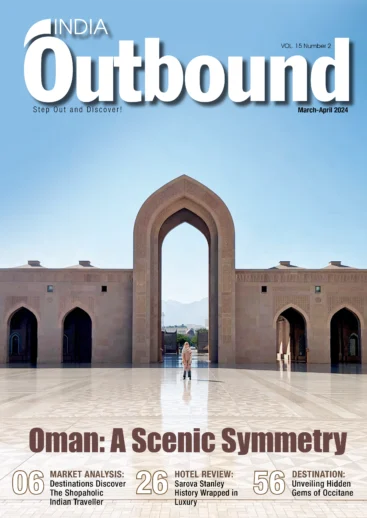
South Africa remains the largest importing country in Africa
The African hospitality industry is undergoing a challenging period, with challenges ranging from problems in supply chains to emergence of new players as well as changing trade rules. These issues were on top of the agenda for dozens of hospitality leaders who have gathered in the Kenyan capital Nairobi for the African Hospitality Investment Forum 2023.
According to a press statement by the organisers, for too many years, African hospitality leaders have worked incredibly hard to maintain operational standards when critical products are unavailable to be sourced on time due to a myriad of reasons, from changing trade restrictions, poor transport infrastructure, currency fluctuations, and supply chain breakages.
The leaders will also discuss growth opportunities in the region and share their learnings from the last year including developments across the trade and operational landscape. Among those attending is Toggle Market’s CEO, Fuad Sajdi, and VP of Africa, Abraham Muthogo Kamau, where they have been leading discussions on leveraging local and regional sourcing, and the innovative ways the sector is reducing operational costs, says the statement by the organisers.
Supply chain challenges in Africa have been one of the primary obstacles for economic growth and diversification, with businesses continuing to pay inflated prices for nearly every consumable and operational product that is not locally grown or manufactured – where even then it is more profitable to export outside the continent than to cater to the regional market due to weak intra-trade regulations.
Today there are promising signs that this status quo is changing fast.
The African hospitality industry is in the throes of a massive transformation as ground-breaking trade measures, rapidly evolving technology, and a fresh generation of visionary leaders. These forces are challenging the traditional “business as usual” mindset and reshaping the African hospitality landscape, say the organisers.
The African Continental Free Trade Area (AfCFTA), the largest free trade area globally since the formation of the World Trade Organization, is set to significantly bolster intra-African trade. By reducing trade barriers, it allows a more fluid movement of goods, services, and people across borders. The ripple effect will be profound, with the hospitality sector one of the many industries reaping the benefits of this regional integration.
Breaking with the Past
The lessons of the Covid-19 pandemic have been harshest on the world’s largest continent which has for so long relied on suppliers in far flung countries, most heavily on goods from China, European Union (EU) countries, United States and India.
The statement adds that for instance, South Africa remains the largest importing country in Africa with 17 pc of all imports in the region. Its largest import partners in 2023 were China at 21.9 pc, followed by United States at 8.8 pc, Germany at 7.3 pc, India 5.8 pc and the UAE 3.6 pc. The next largest importing countries are Nigeria, Egypt, Morocco, Kenya and Ghana.
The speakers expressed concern that unfortunately intra-African trade still stands at only 15.2 pc, a poor showing when compared with intra-continental trade figures for America, Asia, and Europe, which stand at 47 pc, 61 pc, and 67 pc, respectively, and which should be at the head of the pan regional efforts to support trade and business. Much of this is due to multiple trade restrictions that exist in the region and between neighbouring countries for instance.
The statement adds that this puts brakes on the growth of regional businesses while limiting the flow of the international supply chain which in turn heavily relies on intra-African trade routes, where goods are transported across several borders by land routes, due to poor infrastructure and lack of trade and custom harmonisation.
For locally grown African hospitality investors and operators, the supply chain challenges remain acute, and ramifications have meant consistent delays in the growing pipeline of projects, along with sometimes turbulent price fluctuations on shipping and logistics services, as well as effects of weakened domestic currencies.
The organisers say that research across Toggle Hospitality clients in Africa has shown examples of multiple duties paid in this way to receive goods crossing several borders resulting in highly inflated pricing for essential products and equipment.
Trade Cooperation and Collaboration
The good news is that there are signs across all industry sectors of more joined up thinking and increased regional cooperation. For instance, amongst East African nations there has been a noticeable increase in activities across both government backed and private sector efforts through the multiple alliances that exist such as the East Africa Business Council, the East African Chamber of Commerce and Trade, and the East African Association.
In addition, the highly lauded and anticipated rollout of the African Continental Free Trade Area (AfCFTA) agreement is geared to be the largest free trade region in the world based on the number of countries, connecting 1.3 billion people across 55 countries with a combined Gross Domestic Product (GDP) of USD 3.4 trillion and with a major potential as well to lift over 30 million people out of the poverty line.
For this to succeed there will need to be mutual and significant policy reforms and trade facilitation measures to reduce red tape, simplify customs procedures, and make it easier for African businesses to integrate into global supply chains. The upside is a boost of income gains around USD 300 billion.
The role of technology and the importance of a knowledge-based economy will increasingly be a driving force for transforming economic prosperity. The latest report by UNCTAD has warned that neglecting the high knowledge-intensive services, such as information and communications technology services and financial services, will be a key reason holding back export diversification in Africa.
New kids on the block
The statement adds that one of the most exciting outcomes of more regional integration is the rise of home-grown hotel chains that are now expanding beyond their respective national borders. In 2022, intra-African travel accounted for 40 pc of the total number of hotel guests in the continent, up from 34 pc in 2019, according to the African Development Bank. This increase is partly attributable to the easing of travel restrictions and the growth of African hotel chains.
The United Nations World Tourism Organisation (UNWTO), forecasts 134 million visitors by 2035. These figures make it the second fastest growing region in tourism after Asia Pacific.
This new wave of hospitality brands is being led by a dynamic generation of African leaders who understand the local markets and are at the forefront of developing more viable value-based networks and forging stronger regional partnerships. These individuals are harnessing the benefits of the AfCFTA, using innovative practices to enhance the hospitality experience with a unique African flavour that can cater better to the African consumer needs while at the same time offering global standards of service.

Abraham Muthogo Kamau
For example, today over 80 pc of safari lodges in South Africa are managed by indigenous brands and a part of the tourism sector that generates around 70 pc of hospitality revenue. This segment is growing rapidly across the region.
“There is a major paradigm shift taking place with progressive trade policies and cutting-edge technology. This new generation of leaders are poised to redefine the essence of hospitality in Africa. We are delighted to be participating this year at AHIF 2023 which continues year on year to help shape the African hospitality industry and spotlight investment opportunities,” says Abraham Muthogo Kamau, Vice President (Africa) at Toggle Market.
















